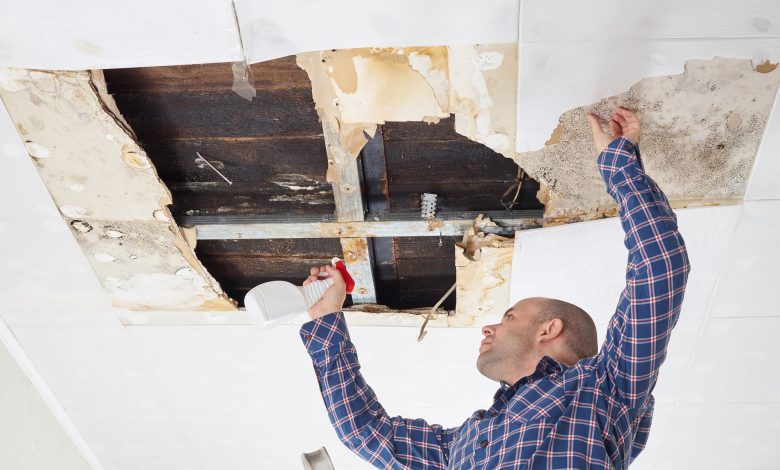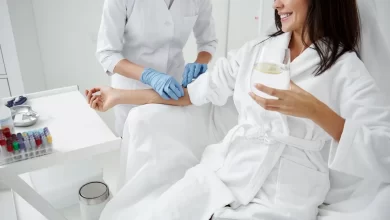Understanding Why Mold Grows in Your House and the Importance of Mold Testing

Mold growth in your home is not just an aesthetic issue—it’s a serious problem that can affect your health and property. Understanding the reasons behind mold development and the role of Mold Testing is essential for creating a safe and healthy living space.
This blog explores why mold forms in homes, its impact, and why regular mold testing is vital.
Why Does Mold Grow in Homes?
Mold thrives in environments where moisture is present. It requires warmth, organic material to feed on, and a source of water to grow. The most common areas where mold is found include:
- Bathrooms and Kitchens: High humidity levels and frequent water usage make these areas prone to mold.
- Basements: Often damp and less ventilated, basements provide the perfect breeding ground for mold.
- Attics and Crawl Spaces: Poor insulation and ventilation can cause condensation and lead to mold growth.
- Leaky Roofs and Pipes: Water leaks that go unnoticed can create ideal conditions for mold to develop behind walls and ceilings.
Understanding the Importance of Logistics Companies in Supply Chains
Factors Contributing to Mold Growth
Several factors can accelerate mold growth in your home:
Excessive Humidity
High indoor humidity levels, especially above 60%, create an environment where mold can thrive. Homes with poor ventilation or a lack of dehumidifiers are particularly susceptible.
Water Damage
Leaks from plumbing, roofs, or flooding can leave areas of your home wet for extended periods, leading to mold formation. Even minor leaks that go undetected can result in significant mold issues over time.
Poor Ventilation
Rooms that don’t have adequate airflow are more prone to moisture buildup. Proper ventilation helps prevent mold growth by allowing fresh air to circulate and drying out damp areas.
Organic Material
Mold feeds on organic materials like wood, paper, and drywall. Homes with these building materials are especially vulnerable if moisture is present.
The Importance of Mold Testing
Mold Testing is a critical step in identifying and understanding the extent of a mold problem.
Unlike a visual inspection, which may miss hidden mold colonies, mold testing involves collecting air and surface samples to detect mold spores and identify the types present. Here’s why mold testing is essential:
Accurate Identification
Mold testing helps pinpoint the type of mold in your home, including harmful species like black mold (Stachybotrys chartarum). Knowing the specific mold type can help determine the appropriate treatment and remediation methods.
Hidden Mold Detection
Mold can grow in hidden areas such as behind walls, under flooring, and inside HVAC systems. Mold testing uses specialized equipment to detect mold growth that may not be visible during a standard inspection.
Assessing Health Risks
Certain mold types produce mycotoxins that can be harmful to health, particularly for individuals with allergies, asthma, or compromised immune systems. Mold testing can help you understand potential health risks in your home.
Understanding Pros and Cons of Selling Your House To Investors
Signs That Mold Testing Is Necessary
There are several indicators that suggest it’s time to schedule a Mold Testing service:
- Musty Odor: A persistent, earthy smell, especially in areas prone to dampness, is a telltale sign of mold.
- Visible Mold Growth: Any black, green, or white patches on walls, ceilings, or floors should be addressed immediately.
- Water Leaks or Damage: If you’ve experienced any form of water intrusion, it’s wise to conduct a mold test to ensure there are no hidden problems.
- Health Symptoms: Unexplained respiratory issues, skin rashes, or allergy-like symptoms could indicate mold exposure in your home.
How to Prevent Mold Growth
Preventing mold growth is essential for maintaining a healthy living environment. Here are some preventive measures to consider:
- Maintain Proper Humidity Levels: Use dehumidifiers and air conditioners to keep humidity below 50%.
- Repair Leaks Promptly: Address any plumbing or roof leaks immediately to prevent water from stagnating.
- Improve Ventilation: Make sure rooms are well-ventilated to help moisture evaporate. Use exhaust fans in high-moisture areas.
- Regular Inspections: Conduct routine checks of your home’s most vulnerable areas to catch potential mold issues early.
Stunning Interior Decorating Palettes That Can Easily Mold Into the Hands of Builders and Homeowners
Conclusion
Mold growth in your home is more than just an unsightly nuisance; it’s a significant health and property hazard.
Understanding why mold grows and investing in Mold Testing can help you identify potential issues and take action before they become a major problem.
Regular mold testing, coupled with preventive measures, will keep your home safe, healthy, and mold-free. Don’t wait until the damage is done—schedule a mold inspection today and protect your home and loved ones.




